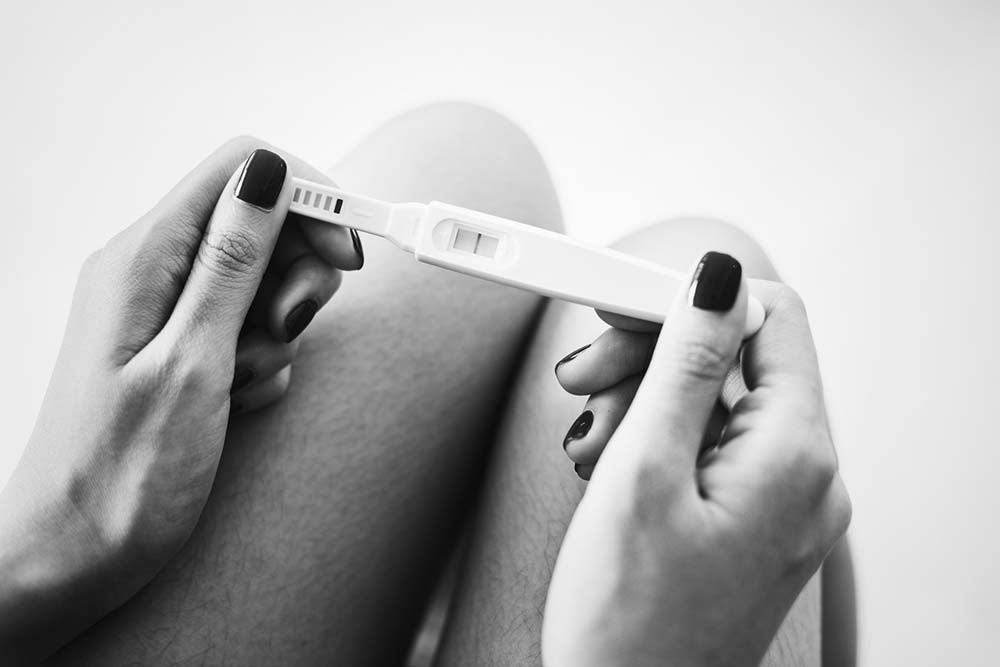[dropcap letter=”R”]
eproductively speaking, the human species is very inefficient. In most mammals, 90% of sexual encounters in the fertile period achieve pregnancy. In the case of humans, the probability of it happening does not even reach 30%. Like in the lottery, time and insistence improve statistics. According to figures from the Spanish Fertility Society (SEF), after 3 months, the probability is 57%; after 6 months, 72% and after a year, 85%. The second year reaches 93%. On average, we will need about 108 coitus to achieve it. And this, in the case of couples under 30, healthy and sexually active during the brief fertility window of the woman. The higher the age, the lower the percentage of probabilities and the more attempts and time will be necessary. All this, without taking into account that there are many more factors -medical, physical and of habits and environment- that can influence the process.
Becoming voluntarily pregnant is not easy. It takes your whole life to realize. Many years of investing in contraceptive methods and, when you decide to have a child, the chances, already in decline, start conditioning your life. At first, sex is abundant, chaotic, romantic. As the months go by, it becomes practical, mechanical, aseptic. One eye is in the calendar and the other in the thermometer that measures your basal temperature or the texture of the fluids that stain your panties. The changes of early habits come: eat this, do not drink that, do and stop doing things “just in case”. Meanwhile, pregnancies of other women spread around like the flu. But your period is still there, month after month. Your blood begins to become your own failure.
AN ANTICONCEPTIVE CALLED STRESS
Surprise. Disconcert, worry. Anger. Sadness. Rage, guilt. “If you”, “if I”, “if we”. Anxiety. The vicious circle of emotional negativity begins to turn, and you get stuck in it like a hamster in heat. In addition, biology turns against you: the more overwhelmed, the less chance of getting pregnant. A study by the University of Oxford in 2010 showed that women with the highest levels of adrenaline and cortisol saliva (two hormones produced by the body in response to stress) had their fertility reduced by 12% compared to those with lower levels.
The responsibility of observing alone your own body (which, suddenly reveals itself as a complete stranger to you) and the pressure of trying to perceive signs of fertility that you have never detected before increase anguish, loneliness and guilt. How to relax then? Without a doubt, sharing all that weight -also that of monitoring your body- with your partner can help you cope with it. Sincere and open communication, and a special care of privacy, will be basic requirements so that the emotional cracks that the process opens will not grow too much.
“THE PREGNANCIES OF MY FRIENDS MAKE ME ANGRY”, A TRUE TABU
Meritxell Sánchez, a psychologist specialized in perinatal psychology -the field of psychology specialized in emotional conflicts linked to motherhood / fatherhood- is accustomed to hearing this phrase on a day-to-day basis: “It is normal and frequent that the woman who is seeking pregnancy without success feels that it only happens to her and that other women get pregnant quickly and easily”, says Sanchez. “It is also common that this produces a feeling of anger that, on occasion, pushes her to not want to meet pregnant women”, explains the psychologist, co-founder of the Spanish Association of Perinatal Psychology (AEPP).
The anger for the pregnancies of others is a huge taboo. “I am an envious person, a selfish person, a bad person”, repeats the feeling of guilt like a mantra. Solution: shutting up -“how could I say it? Who would understand something like that?”- and dissimulating. Meanwhile, the anger digs its trench thanks to the silence and, from there, stones the self-esteem until leaving it k.o.
But the reality is that, just like in any other conflict, denying or ignoring it only makes things worse. Meritxell Sánchez advises doing the opposite. “The best way to combat a thought is to accept it, without judging, denying, avoiding, minimizing or invalidating what we feel”. And then? Talking helps. With friends, with other women in the same situation, with specialists. “By verbalizing it, we become more aware of what we think and feel, so it is easier for us not to suffer so much. In addition, when what happens to us is socially turned visible and the pain is taken into account, without being silenced or denied, we can better integrate that experience and begin to repair the trauma”, says the psychologist.
TO HELP, BETTER LISTEN TO TALK
“-You’ll see: when you stop thinking about it, it will happen”; “-Come on, it’s not that important”; “And, what about having a baby?” are common phrases that take off awkwardly and with good intentions and land like sniper shots. Silence hurts, but sometimes help hurts too.
Making the environment aware of what we are living requires that we specify our own needs aloud and that we ask for the help we need without hesitation. At the same time, it is urgent that, as a society, we learn to prattle less and listen more. Nobody expects from us the solution to their problems, only certain accompaniment and empathy. But how is that done? Meritxell Sánchez makes this proposal: “You have to ask, how are you? and what do you need from me today? Listen actively, without offering advice if it has not been asked; validate and not judge what the other person feels; and, above all, it is better not say anything when we do not know what to say. A hug or saying sorry can be the best help.





















